
Find Help
More Items From Ergsy search
-

What are Screw Worms parasites?
Relevance: 100%
-

Are there any natural predators of screw worms?
Relevance: 78%
-

Where are screw worms found geographically?
Relevance: 76%
-

How do screw worms reproduce?
Relevance: 76%
-

Are screw worms dangerous to humans?
Relevance: 74%
-

What methods are used to control screw worm populations?
Relevance: 72%
-
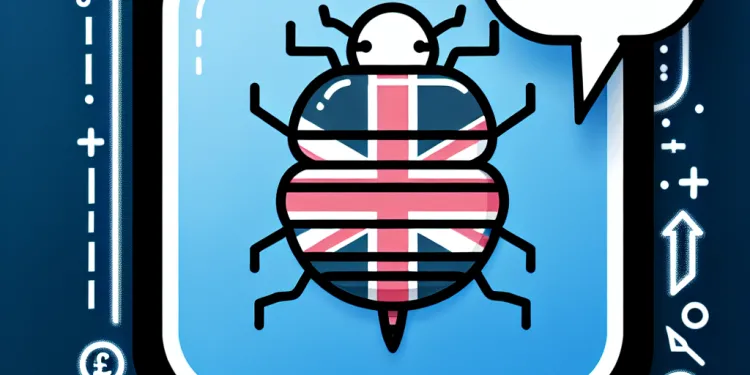
Can screw worm infestations be prevented?
Relevance: 71%
-

How do screw worms infest their hosts?
Relevance: 71%
-
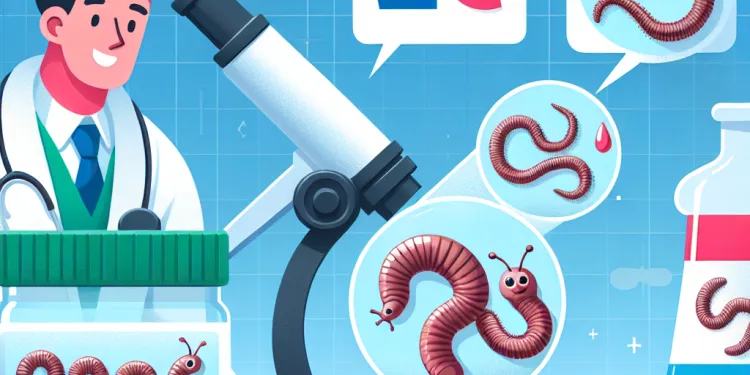
Can screw worms cause zoonotic disease?
Relevance: 69%
-

Has the screw worm been eradicated in some areas?
Relevance: 69%
-

How are screw worm infestations treated?
Relevance: 69%
-

What impact do screw worms have on livestock?
Relevance: 69%
-
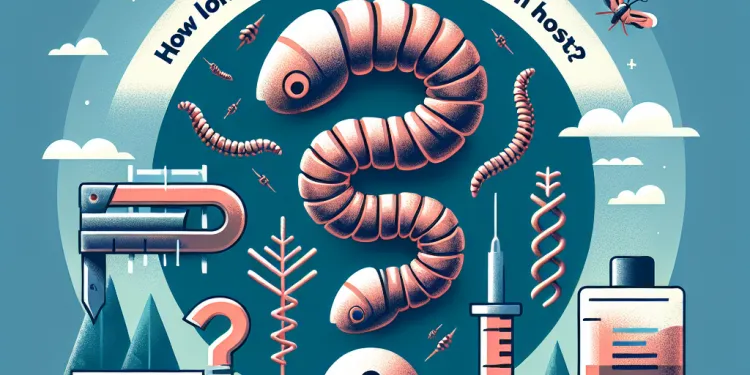
How long do screw worm larvae typically infest a host?
Relevance: 68%
-

What measures are taken during a screw worm outbreak?
Relevance: 68%
-

What are the symptoms of a screw worm infestation?
Relevance: 66%
-

What species of flies produce screw worms?
Relevance: 63%
-

What animals can be affected by screw worms?
Relevance: 51%
-

What economic impact do screw worms have?
Relevance: 50%
-

How can individuals help in the fight against screw worms?
Relevance: 45%
-

Are there any parasites that can be transmitted through blood transfusions?
Relevance: 35%
-

Why is screw worm eradication important?
Relevance: 27%
-

What are the main types of meningitis?
Relevance: 14%
-

How do I install a Ring Doorbell Camera?
Relevance: 12%
-

Is malaria still a concern for blood transfusion safety?
Relevance: 11%
-

What diseases can be spread by blood transfusions?
Relevance: 10%
-

Sexually transmitted infections STIs
Relevance: 8%
-

BSL Trichomonas
Relevance: 8%
-

Is Chagas disease a concern with blood transfusions?
Relevance: 8%
-
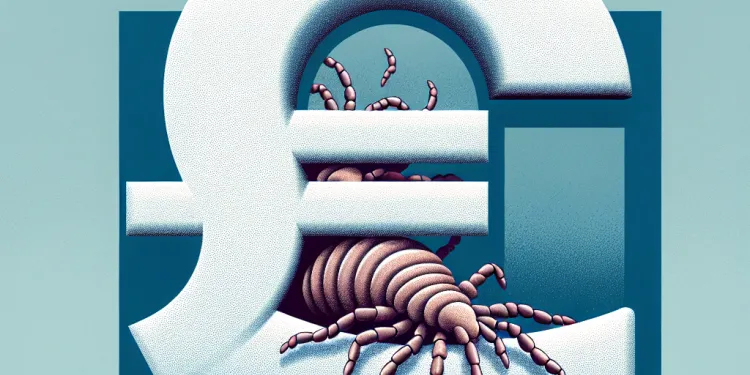
What are head lice?
Relevance: 7%
-

How does a battery-powered Ring Doorbell Camera work?
Relevance: 7%
-
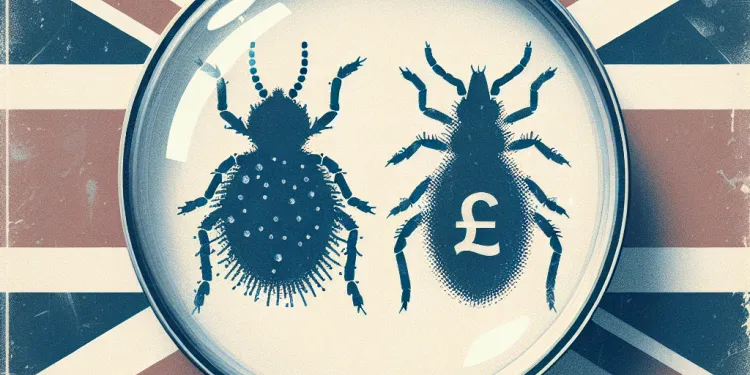
Are nits and head lice the same thing?
Relevance: 7%
-

NHS STI (Sexually Transmitted Infections) Information Video
Relevance: 7%
-

Why is meningitis a medical emergency?
Relevance: 7%
-

How do I recharge the battery on a Ring Doorbell Camera?
Relevance: 7%
-

Do nits live off the scalp?
Relevance: 6%
-

How can you differentiate nits from dandruff?
Relevance: 6%
-

How soon do symptoms appear after infection?
Relevance: 5%
-

How do I maintain my mosquito screens?
Relevance: 5%
-

What happens if my Ring Doorbell Camera is stolen?
Relevance: 5%
-
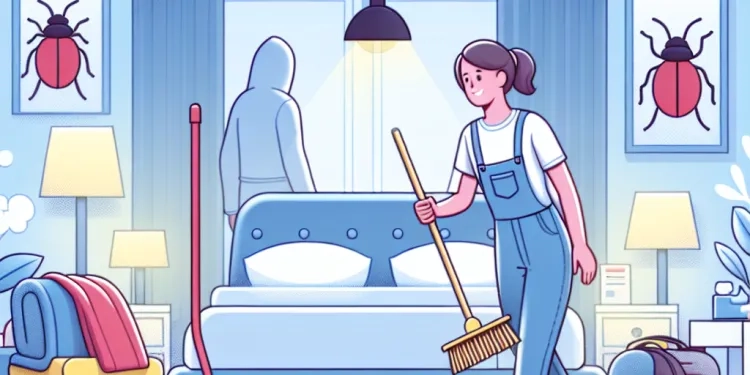
Are bed bugs dangerous?
Relevance: 5%
Introduction to Screw Worms
Screw worms are parasitic flies that are a major concern for livestock and wildlife. They belong to the family Calliphoridae and are known for their destructive larval stage. When screw worm larvae, commonly referred to as maggots, infest a host, they cause severe tissue damage that can lead to significant health issues and even death if not treated promptly.
Biology and Lifecycle
Screw worms undergo complete metamorphosis, progressing through egg, larval, pupal, and adult stages. Adult flies lay their eggs on the open wounds or mucous membranes of warm-blooded animals. Within a day, the eggs hatch into larvae, which burrow into the flesh of the host. This invasive feeding can cause extensive tissue damage, as the larvae feed on living tissue rather than dead tissue, which differentiates them from other fly larvae.
Types of Screw Worms
There are mainly two species of screw worms that are of concern: the New World screw worm (Cochliomyia hominivorax) and the Old World screw worm (Chrysomya bezziana). The New World screw worm is primarily found in the Americas, while the Old World screw worm is prevalent in parts of Africa, the Middle East, and South Asia. Both species are capable of causing severe infestations, but their geographic distribution varies.
Impact on Agriculture
Screw worms pose a significant threat to agriculture, particularly in the livestock industry. Infestations can lead to substantial economic losses due to decreased productivity, increased veterinary costs, and mortality. Animals such as cattle, sheep, goats, and even wildlife are susceptible to screw worm infestations. The economic burden has led to extensive eradication and control efforts, including the successful elimination of the New World screw worm from the United States and some parts of Central America.
Prevention and Control
Control measures for screw worms primarily involve the use of sterile insect technique (SIT), where sterile male flies are released into the wild to decrease the reproduction rate of the screw worm population. Additionally, ongoing surveillance, monitoring, and rapid response to outbreaks are crucial in preventing re-infestation. Farmers and livestock owners should remain vigilant for signs of infestation, such as unusual sores on livestock, and seek veterinary care promptly.
Conclusion
While screw worms are not currently a threat in the UK, due to stringent biosecurity measures and cooler climate conditions, awareness and understanding of these parasites remain crucial. Maintaining robust biosecurity practices ensures that screw worms and similar parasites do not become an issue for UK agriculture and wildlife.
Introduction to Screw Worms
Screw worms are a type of fly that can hurt animals like cows and sheep. The baby flies, called maggots, are the problem. They eat the animal's skin and can make the animal very sick or even die if not helped quickly.
Biology and Lifecycle
Screw worms grow in four stages: egg, maggot, pupa, and adult fly. The adult fly puts its eggs on cuts or wet areas of animals. The eggs turn into maggots in one day, and they start eating the animal's skin. This is different from other flies because screw worms eat living skin, not dead parts.
Types of Screw Worms
There are two main kinds of screw worms. The New World screw worm lives in the Americas, and the Old World screw worm lives in Africa, the Middle East, and South Asia. Both can be a big problem for animals, but they live in different parts of the world.
Impact on Agriculture
Screw worms are bad for farming, especially for animals like cows and sheep. They can cause farmers to lose money because animals get sick or die. Many countries spend a lot of time and money to stop screw worms. The United States and some areas of Central America have been able to get rid of the New World screw worm.
Prevention and Control
To stop screw worms, people use the sterile insect technique. This means they let out flies that cannot have babies. This helps reduce screw worm numbers. Farmers need to look out for new sores on animals and get help from a vet quickly.
Conclusion
Screw worms are not a problem in the UK because of good security checks and cooler weather. But people still need to know about them to keep UK animals safe. Staying careful helps ensure these flies do not cause trouble in the UK.
Frequently Asked Questions
What are screw worms?
Screw worms are parasitic fly larvae (maggots) that infest and feed on the living tissue of warm-blooded animals.
What species of flies produce screw worms?
The primary species is Cochliomyia hominivorax, commonly known as the New World screw worm fly.
How do screw worms infest their hosts?
Adult female screw worm flies lay eggs in open wounds or mucous membranes. The larvae hatch and burrow into the flesh to feed.
What animals can be affected by screw worms?
Screw worms can infest a wide range of animals, including livestock, wildlife, pets, and humans.
Are screw worms dangerous to humans?
Yes, screw worms can infest humans, causing painful wounds and potentially severe infections if untreated.
Where are screw worms found geographically?
Screw worms are primarily found in tropical and subtropical regions of the Americas, but eradication programs have significantly reduced their range.
What are the symptoms of a screw worm infestation?
Symptoms include inflamed, foul-smelling wounds with visible larvae, along with tissue damage and secondary infections.
How are screw worm infestations treated?
Infestations require prompt medical or veterinary attention, involving removal of larvae, cleaning the wound, and sometimes using topical or systemic medications.
Can screw worm infestations be prevented?
Prevention can include maintaining good hygiene and wound care in animals and humans, as well as using insect repellents and protective coverings.
Why is screw worm eradication important?
Eradication is crucial to protect livestock industries, prevent painful infestations in animals and humans, and reduce economic losses.
What methods are used to control screw worm populations?
The sterile insect technique, involving the release of sterilized male flies, is a successful method to control and eradicate screw worms.
How do screw worms reproduce?
Female screw worm flies lay their eggs in wounds, where they hatch into larvae. The larvae feed on tissue and eventually drop to the ground to pupate.
What impact do screw worms have on livestock?
Infestations can cause severe tissue damage, secondary infections, reduced productivity, and even death in livestock.
Are there any natural predators of screw worms?
Certain parasitoid wasps and predatory beetles can prey on screw worm larvae, but they typically do not control populations effectively alone.
What measures are taken during a screw worm outbreak?
Outbreak measures include intensive surveillance, quarantine, treatment of infestations, and implementation of control programs.
Has the screw worm been eradicated in some areas?
Yes, successful eradication campaigns have eliminated screw worms from parts of North America and other regions through sustained efforts.
Can screw worms cause zoonotic disease?
While screw worm infestations themselves are not zoonotic diseases, the parasitic nature of the larvae can cause significant health issues.
How long do screw worm larvae typically infest a host?
Screw worm larvae typically feed on a host for 5 to 7 days before falling off to pupate.
What economic impact do screw worms have?
Screw worm infestations can cause substantial economic impacts due to treatment costs, loss of livestock, and impacts on animal trade.
How can individuals help in the fight against screw worms?
Public education, reporting suspected cases promptly, supporting eradication efforts, and adhering to biosecurity measures are ways to help.
What are screw worms?
Screw worms are a type of fly. When they are young, they are called maggots. These maggots can make animals sick. Screw worm maggots live on animals and eat their skin.
Supportive tools: You can use pictures and videos to help understand what screw worms are. A simple story or video about bugs can also help.
Screw worms are baby flies called maggots. They live and eat inside the bodies of animals that are warm, like cows or dogs.
Which flies make screw worms?
The main type of fly is called the New World screw worm fly. Its scientific name is Cochliomyia hominivorax.
How do screw worms get into animals?
Adult lady screw worm flies lay eggs in open cuts or wet parts like eyes or noses. The baby flies, called larvae, come out and dig into the skin to eat.
Which animals can get screw worms?
Screw worms are small bugs that can get into many animals. They can get into farm animals, wild animals, pets, and even people.
Can screw worms hurt people?
Screw worms are insects. They can make people sick if they get into the skin. But this does not happen often. It's important to see a doctor if you think you have a problem with screw worms.
To stay safe, you can:
- Keep clean and cover any cuts.
- Stay away from places with lots of flies.
- Ask for help if you feel unwell.
Yes, screw worms can get into people's skin. They cause painful sores and can make you very sick if not treated.
Where do screw worms live in the world?
Screw worms are mostly found in warm places in the Americas. These are places with lots of sun and rain. But, people are working hard to get rid of them, so there are not as many screw worms as before.
What happens if an animal has screw worms?
Signs of this problem are red and smelly sores. You might see small worms in them. The skin gets hurt, and other germs can cause infections too.
How do you treat screw worm problems?
If animals or people have screw worms, they need special care. Here are some simple steps to help:
- See a doctor or a vet. They know how to help.
- Keep the sore clean. Wash it with soap and water.
- Cover the sore with a bandage.
- The doctor or vet might use medicine to kill the worms.
- Check with the doctor or vet to see if the treatment is working.
If you're not sure what to do, ask a grown-up or a helper for advice. They can support you with these steps.
If you have a bug problem, get help from a doctor or vet right away. They will take out the bugs, clean the sore spot, and might use some medicine to help make it better.
How can we stop screw worm infestations?
Screw worms are tiny bugs that can hurt animals. Here are some ways to stop them:
- Keep places clean. Regular cleaning helps keep bugs away.
- Look after cuts. Check animals for open wounds and keep them clean.
- Use medicine. Ask a vet for special treatments to keep screw worms away.
- Check animals often. Look at your animals regularly to catch any problems early.
Using these tips can help protect your animals. You can also use tools like picture guides to help identify screw worms.
To stay healthy, keep clean and take care of any cuts or wounds on both animals and people. Use bug spray and wear coverings like long sleeves to keep insects away.
Why is it important to get rid of screw worms?
Getting rid of pests is very important. It helps keep farm animals safe, stops bug bites that hurt animals and people, and saves money.
How do people stop screw worms from getting too many?
The sterile insect technique is a way to get rid of bad bugs. Scientists let loose male flies that can't have babies. This helps stop screw worms from spreading.
How do screw worms have babies?
Screw worms are a type of fly. The female fly lays eggs on warm-blooded animals. These eggs hatch into tiny babies called larvae. The larvae grow by feeding on the animal. An adult screw worm fly finds a mate to lay eggs again.
To read about this topic, you can use tools like text readers or watch videos for more help.
Female screw worm flies are bugs. They lay their eggs in cuts or sores on animals. The baby bugs, called larvae, hatch from the eggs. They eat the skin and flesh around the sore. After they grow, they fall to the ground. Next, they change into pupae, which is like a growing stage for bugs.
How do screw worms affect farm animals?
Screw worms can hurt farm animals like cows and sheep.
They make the animals sick. This can make it hard for farmers.
Farmers need to watch animals carefully to keep them healthy.
Using bug sprays and checking animals can help.
Bugs and pests can harm animals like cows and sheep. They can hurt their bodies, make them sick, slow them down, and sometimes even cause them to die.
Do any animals eat screw worms?
Some special wasps and beetles can eat bad worms. But these wasps and beetles can't do the job alone.
What do people do when there is a screw worm outbreak?
To stop a disease from spreading, we can:
- Watch closely for any signs of the disease.
- Keep sick people or animals away from others.
- Give medicine or help to those who are sick.
- Use special plans to stop the disease.
Has the screw worm been removed from some places?
A screw worm is a bad worm that hurts animals and people.
People work hard to stop screw worms. In some places, they have been removed.
If you want to know more, you can ask a helper or use a computer to learn.
Yes, people worked hard to get rid of screw worms in North America and other places. They did it!
Can screw worms make people sick?
Screw worms are bugs that can make animals sick. They sometimes lay eggs in open wounds.
People can also get sick if these bugs lay eggs in their wounds. This is rare, but it can happen.
Tell a grown-up if you have a cut that doesn't heal or if you see bugs around it.
Using picture books or videos can help you learn more about these bugs and stay safe.
Screw worms don't spread diseases that can jump from animals to people. But the larvae, or baby worms, can cause big health problems.
How long do screw worm babies live in an animal?
Screw worms are bugs. The babies, called larvae, live inside animals for a short time. Do you want help learning more? It’s okay to ask! Look for pictures or videos to understand better. You can also ask someone to explain it to you.
Baby screw worms, called larvae, eat from an animal for about 5 to 7 days. Then, they come off the animal to grow into adult flies.
How do screw worms affect the economy?
Screw worms are bad for animals. They make animals sick, which costs farmers money. This can make things more expensive for everyone.
If you find it hard to read, you can try using reading tools like text-to-speech. They can help you understand better.
Screw worms can cause big problems. They can cost a lot of money because of:
- Money needed for treatment.
- Loss of farm animals.
- Problems with selling animals.
Some things that can help are:
- Talking to a vet for help.
- Using special medicines to stop screw worms.
- Keeping animals in clean places.
How can people help stop screw worms?
Screw worms are bad for animals. They make them sick. Here is how you can help:
- Tell an adult if you see animals with open wounds.
- Keep your pets clean and check for any cuts or sores.
- Stay away from animals that look sick or hurt.
- Ask a vet or a grown-up for more help.
Here are some tools to help:
- Magnifying glass: to look at animals closer.
- Notebook: to write down what you see.
- Phone: to call a vet or adult if you need help.
Remember, it is important to care for animals and keep them healthy!
You can do these things to help:
- Learn about the issue and tell others.
- Tell someone quickly if you think there is a problem.
- Help get rid of the problem.
- Follow safety rules.
Useful Links
This website offers general information and is not a substitute for professional advice.
Always seek guidance from qualified professionals.
If you have any medical concerns or need urgent help, contact a healthcare professional or emergency services immediately.
- Ergsy carfully checks the information in the videos we provide here.
- Videos shown by Youtube after a video has completed, have NOT been reviewed by ERGSY.
- To view, click the arrow in centre of video.
- Most of the videos you find here will have subtitles and/or closed captions available.
- You may need to turn these on, and choose your preferred language.
- Go to the video you'd like to watch.
- If closed captions (CC) are available, settings will be visible on the bottom right of the video player.
- To turn on Captions, click settings .
- To turn off Captions, click settings again.
More Items From Ergsy search
-

What are Screw Worms parasites?
Relevance: 100%
-

Are there any natural predators of screw worms?
Relevance: 78%
-

Where are screw worms found geographically?
Relevance: 76%
-

How do screw worms reproduce?
Relevance: 76%
-

Are screw worms dangerous to humans?
Relevance: 74%
-

What methods are used to control screw worm populations?
Relevance: 72%
-

Can screw worm infestations be prevented?
Relevance: 71%
-

How do screw worms infest their hosts?
Relevance: 71%
-

Can screw worms cause zoonotic disease?
Relevance: 69%
-

Has the screw worm been eradicated in some areas?
Relevance: 69%
-

How are screw worm infestations treated?
Relevance: 69%
-

What impact do screw worms have on livestock?
Relevance: 69%
-

How long do screw worm larvae typically infest a host?
Relevance: 68%
-

What measures are taken during a screw worm outbreak?
Relevance: 68%
-

What are the symptoms of a screw worm infestation?
Relevance: 66%
-

What species of flies produce screw worms?
Relevance: 63%
-

What animals can be affected by screw worms?
Relevance: 51%
-

What economic impact do screw worms have?
Relevance: 50%
-

How can individuals help in the fight against screw worms?
Relevance: 45%
-

Are there any parasites that can be transmitted through blood transfusions?
Relevance: 35%
-

Why is screw worm eradication important?
Relevance: 27%
-

What are the main types of meningitis?
Relevance: 14%
-

How do I install a Ring Doorbell Camera?
Relevance: 12%
-

Is malaria still a concern for blood transfusion safety?
Relevance: 11%
-

What diseases can be spread by blood transfusions?
Relevance: 10%
-

Sexually transmitted infections STIs
Relevance: 8%
-

BSL Trichomonas
Relevance: 8%
-

Is Chagas disease a concern with blood transfusions?
Relevance: 8%
-

What are head lice?
Relevance: 7%
-

How does a battery-powered Ring Doorbell Camera work?
Relevance: 7%
-

Are nits and head lice the same thing?
Relevance: 7%
-

NHS STI (Sexually Transmitted Infections) Information Video
Relevance: 7%
-

Why is meningitis a medical emergency?
Relevance: 7%
-

How do I recharge the battery on a Ring Doorbell Camera?
Relevance: 7%
-

Do nits live off the scalp?
Relevance: 6%
-

How can you differentiate nits from dandruff?
Relevance: 6%
-

How soon do symptoms appear after infection?
Relevance: 5%
-

How do I maintain my mosquito screens?
Relevance: 5%
-

What happens if my Ring Doorbell Camera is stolen?
Relevance: 5%
-

Are bed bugs dangerous?
Relevance: 5%


